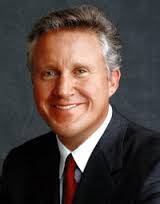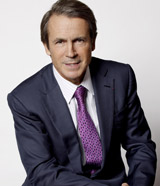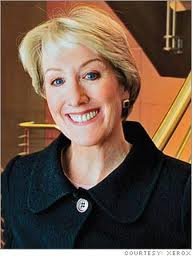Next week will be the final week before the end of term in a host of universities across the different parts of the world. For many students this brings the dreaded exam week and often a huge amount of self doubt with it. Many have thoughts of giving up the whole process at this time. After all, Bill Gates, Steve Jobs and Mark Zuckerberg are all college dropouts and they seem to have done alright for themselves. If they could succeed with a degree, is it really necessary to spend all that time and effort? It might seem like a nice idea but unfortunately, these few examples don’t tell the entire story.
A Harvard MBA: the ‘golden passport’

Click to access more AMP books.
In 1978, the New York Times described a Harvard MBA as a “golden passport” to financial well being. Khurana (2005). The promise of financial and professional rewards having obtained a good degree is something that keeps many students going during the long winter months of study. It is worth remembering though that the business world has produced some quite spectacular exceptions to this rule.
Some of Harvard’s most famous failures
If having a Harvard degree is a guarantee of future success, some people having managed quite nicely thank you without ever going the distance. Bill Gates and Mark Zuckerberg are certainly the most famous of those, both having such up their companies while doing their undergraduate studies and choosing to give up the safety of Harvard Square for new adventures in the world of technology. It should not be forgotten though that they were both smart enough to get into Harvard in the first place and are both remarkable for their diverse talents. Bill Gates were programming computers when he was barely a teenager and Mark Zuckerberg won prizes at school for science and classical studies. He states that he can write in French, Hebrew, Latin, and ancient Greek. In fact, both Gates and Zuckerberg are examples of not real ‘drop outs’ but two geniuses in their particular fields that realised that the system wasn’t going quickly enough for them.
A lesser-known example of this is Gabe Newell. Having abandoned his studies he worked at Microsoft for thirteen years before founding the Valve Corporation in 1996. Current estimates put Mr. Newell’s wealth at around $1.1 billion. This is quite poor by billionaires’ standards, but still, it’s not too shabby.
But at least these 3 people got the chance to throw in the crimson and white towel. Pity poor old Warren Buffet. He didn’t even get the chance to give up Harvard having been refused at the Admission’s stage. Instead, he was forced to ‘‘make do’ (!) with Columbia University instead.
Steve Jobs
Gates, Zuckerberg and Newell might all be considered to by drop outs, but at least they were admitted to one of the world’s best known university and then had the chance to give it up. Steve Jobs however, did not have this opportunity. He attended the lesser known Reed College in Portland, Oregan but gave it up after only six months. He then spend a further year and a dropping in on various classes no doubt in a typical early seventies campaign to ‘find himself.’ He eventually did, of course, and the rest is history.
Robert Woodruff: a university failure but a presidential success
Of course, the recipe from Jobs, Gates and Zuckerberg is to start your own company from nothing and make it a huge success. The corporate world it is said though requires more proof of academic prowess before hiring. This was not the case though for Robert W. Woodruff who attended the excellent university, Georgia Tech. Unfortunately, Mr. Woodruff was unable to keep up with the pace and eventually had to leave having failed his courses. Undeterred, his parents sent him for a semester at Emory University. It is said that Mr. Woodruff showed a scant amount of motivation there as well, skipping most of his classes and spending considerabele amounts of money.
Depite this lack of academic success, Woodruff, became President of one of the world’s most famous corporations in 1923 the Coca Cola Company. He was only 33 at then time. He would remain President until he stepped down in 1954 and remained the board until 1984. So, top CEO jobs in large multi-nationals can be landed by those with no formal qualifications. Again, there are two small problems with this logic.
Firstly, it was back in the 1920s, a time when hardly anyone had heard of an ‘MBA’ let alone be craving to have one. Secondly, if Mr. Woodruff was no academic genius he was rather smart in his choice of parents. Indeed, you can’t help thinking that the fact that his father was one of the main investors who had bought the Coca Cola Company from Asa Chandler, had some impact on his rise to fame.
In 1979, Woodruff and his brother George W. Woodruff made a donation of $105 million to Emory University. In total they would contribute some $230 million to the university. I wonder if the university administrators at Georgia Tech ever reminded the professors who flunked that poor unruly students.
Choose your university and your parents carefully
So, it would seems that there are a few keys to success without any formal qualifications. Having rich and influential parents who can land you a key job is pretty handy as in the case of Mr. Woodruff. Being smarter and quicker than the system that is trying to train you can be useful too as Bill Gates and Mark Zuckerberg have shown. Otherwise, you just have to be a once in a lifetime genius like Steve Jobs.
Unfortunately, for the rest of us mortals, having formal qualifications can be very useful. In fact, what these few examples fail to tell is the whole host of people that left school without the luck of having a degree and will never have a case study written about them. It might just be easier to go back to that revision!
See also:
The Harvard Business School and the Case Study Method; like a horse and carriage?
 “Love and marriage,” says the old blue eyes himself, Mr. Frank Sinatra, “Go together like a horse and carriage.” This idealised pairing might be said to be relevant for Harvard Business School and the Case Study Method. HBS was created in 1908 and established its case study method in the 1920s. Today, this teaching method is as close to business school orthodoxy as you can possible get. There are approximately 14 000 business schools in the world and you would be hard pressed to find one that did not uses cases to teach business.
“Love and marriage,” says the old blue eyes himself, Mr. Frank Sinatra, “Go together like a horse and carriage.” This idealised pairing might be said to be relevant for Harvard Business School and the Case Study Method. HBS was created in 1908 and established its case study method in the 1920s. Today, this teaching method is as close to business school orthodoxy as you can possible get. There are approximately 14 000 business schools in the world and you would be hard pressed to find one that did not uses cases to teach business.
BOOK REVIEW: “Like a Virgin Secrets They Won’t Teach You at Business School” by Sir Richard Branson
 Richard Branson is one of the world’s business icons. If you work or study in a business school it is almost impossible to resist a title such as “Secret they won’t teach you at business school.” The result the book is…passable. A “B-“ I would say, which is probably better than most of us would score if we tried to build an empire like Virgin.
Richard Branson is one of the world’s business icons. If you work or study in a business school it is almost impossible to resist a title such as “Secret they won’t teach you at business school.” The result the book is…passable. A “B-“ I would say, which is probably better than most of us would score if we tried to build an empire like Virgin.


















I think the question that remains, then, is how far in debt our young up-and-comers are willing to be before they get to apply their top-notch education.
With education Inflation steadily at work, we need more courses designed with constructive networking in mind (thinking about Adam Rifkin, an example from Adam Grant’s book ‘Give and Take’) and a goal of developing relationships with definitive mentors throughout their education career. This should part of active coursework–which it seems not to be according to the students that I encounter. To what degree is this being done for our students now.
Best regards,
Gordon
Thank you for your comment, Gordon. I agree that the cost of education really has gone up in the past years and the need to do research to stay in the rankings has fueled this enormously.
I haven’t read Adam Grant’s book but it is true that students certainly do need things such as networking skills. Companies can be a little ambiguous about this when they are hiring. There is always talk of the need for more soft skills but it is often the ‘quants’ that land the better jobs. This inevitably leads teaching in business schools to be caught wanting to satisfy both.
Thanks for the response Mark. You’re right about schools being caught between trying to satisfy different needs, more than ever.
Also really enjoyed the Tim Brown interview–I like his perspective, so it was nice to see someone local getting a chance to ask him a few questions.
Enjoy the holidays,
Gordon